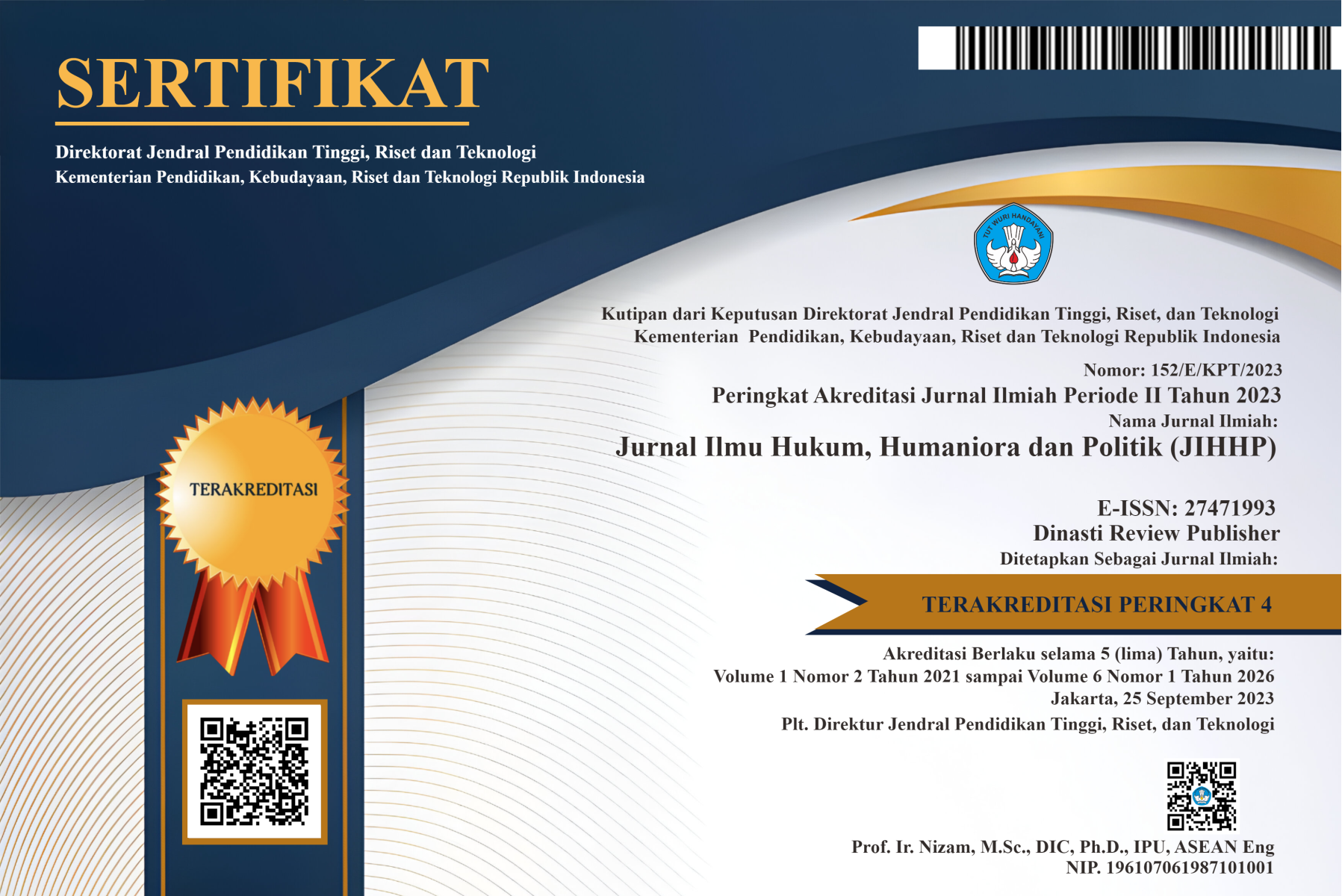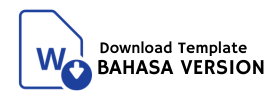Partispasi Bermakna Dalam Formulasi Kebijakan Publik: Studi Mengenai Proses Legislasi Rancangan Undang-Undang Masyarakat Hukum Adat Tahun 2018-2023
DOI:
https://doi.org/10.38035/jihhp.v4i3.1865Keywords:
Policy formulation, Meaningful participation, legislative process, MHA Bill.Abstract
Indegenous Law Peoples have always been marginalized with growing of time. A special law is needed to address problems among customary law communities. The establishment of Law Indigenous Peoples has actually started since 2014 under the name of the PP-MHA and change into the MHA in 2019. Currently MHA Bill is in the national legislation and waiting schedule for the discussion. This research aims analyze the legislative process of MHA Bill using model of policy formulation and concept of meaningful participation. This research uses qualitative methods with exploratory approach and case study strategy. The results are. First, problems among customary law communities are mostly caused by legal uncertainty. Sectoral laws who regulate indegenous law communities different from one another. Second, the stage of selecting alternative policies, there is conflict of interest between factions debating of development and investment will be disrupted because the birth of this Law. Third, the main reason MHA Bill has not been passed, is there are no political will from President and DPR RI to pass MHA Bill. Finally, public participation cannot be said to be meaningful participation. This is caused lack of public access related to conveying aspirations, considering aspirations, and explaining aspirations.
References
Aritonang, D. M. (2014). Metode RIA dalam Formulasi Kebijakan Publik. Jurnal Legislasi Indonesia, 11(3), 22.
Ernawati, E., & Kurniawan, T. (2002). Partisipasi Publik, Konsep dan Metode. MIMBAR?: Jurnal Sosial Dan Pembangunan, 18(1). https://doi.org/10.29313/mimbar.v18i1.61
Moleong, L. (2014). Metode Penelitian Kualitatif Edisi Revisi. PT Remaja Rosdakarya.
Muadi, S., MH, I., & Sofwani, A. (2016). Konsep dan Kajian Teori Perumusan Kebijakan Publik. JRP (Jurnal Review Politik), 6(2), 195–224. https://doi.org/10.15642/jrp.2016.6.2.195-224
Prabawati, I., Rahaju, T., & Kurniawan, B. (2020). Analisis Kebijakan Publik. Unesa University Press.
Prasatyo, A. (2022). Batasan Prasyarat Partisipasi Bermakna Dalam Pembentukan Undang-Undang Di Indonesia. Jurnal Hukum Dan Peradilan, 11(3). https://doi.org/10.25216/jhp.11.3.2022.405-436
Santoso, P. (2010). Modul Pembelajaran Analisis Kebijakan Publik. Yogyakarta: Resesearch Center fot Politics and Government.
Sidney. (2007). Perumusan Kebijakan Publik. Diterjemahkan oleh Amidjaya. Jakarta: BNSP.
Stiefel, M., & Wolfe, M. (1994). A Voice for the Excluded: Popular Participation in Development?: Utopia Or Necessity? Zed Books.
Winarno, B. (2008). Kebijakan Publik Teori dan Proses. Yogyakarta: PT. Buku Kita.
Winarno, B. (2014). Kebijakan Publik: Teori, Proses, dan Studi Kasus. Center of Academic Publishing Service.
Downloads
Published
How to Cite
Issue
Section
License
Copyright (c) 2024 Yosia Viera Martua Sianturi, Nandang Alamsah Delianoor

This work is licensed under a Creative Commons Attribution 4.0 International License.
Hak cipta :
Penulis yang mempublikasikan manuskripnya di jurnal ini menyetujui ketentuan berikut:
- Hak cipta pada setiap artikel adalah milik penulis.
- Penulis mengakui bahwa Jurnal Ilmu Hukum, Humaniora dan Politik (JIHHP) berhak menjadi yang pertama menerbitkan dengan lisensi Creative Commons Attribution 4.0 International (Attribution 4.0 International CC BY 4.0) .
- Penulis dapat mengirimkan artikel secara terpisah, mengatur distribusi non-eksklusif manuskrip yang telah diterbitkan dalam jurnal ini ke versi lain (misalnya, dikirim ke repositori institusi penulis, publikasi ke dalam buku, dll.), dengan mengakui bahwa manuskrip telah diterbitkan pertama kali di JIHHP.
















































